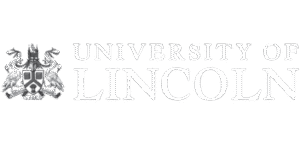To put it lightly, what an interesting few weeks it has been, I’ve often found myself comparing it to a script from a sci-fi film!
We have seen different phases of navigating through the pandemic – from that of crisis, care and now heading into a recovery phase. It has been fascinating having a holistic view across the market and discussing with our networks how people and businesses are adapting to new ways of working. The communication function has taken a leading role in engaging the workforce and doing all it can to keep external and internal audiences informed and safe, to stay on top of business, and deal with the uncertainty amid constantly changing conditions.
Leaders around the world have had to rethink their strategies, goals and priorities in the wake of this pandemic. We have seen many pivot to remote operations almost overnight, complete digital transformations in weeks, rather than months or years, and launching new products in a matter of days.
There has been a noticeable shift to thinking about how we get ahead of the ‘next normal’. Organisations have to consider multiple potential scenarios, some of which require major pivots in business strategy. There have been some great articles from McKinsey covering these phases / stages and forward looking companies will now need to;
- Understanding their position
- Explore potential scenarios
- Set broad directions
- Determine the strategy
- Set the trigger points for when to do what
This global pandemic has been, is, and will continue to be challenging for many but it is also a period of substantial business-building and innovation. Many of us have never seen change this rapid, on such a big scale. It will be fascinating to see and help business building for the ‘next normal’, and the communication function is front and centre for many organisations for communicating this for its clients and employees.
In the last week, we have seen a new shift in focus with the pandemic, with many organisations and individuals looking at re-grouping and adapting to the new normal. Thinking about how they manage the next steps of the crisis and, dare I say it, the eventual recovery.
I caught up with Sheena Thomson, a crisis communications specialist, and she has shared her thoughts on three key areas; ‘review and rotate’, ‘adapt and communicate’ and ‘mitigate and plan’.
Review and rotate
Regularly reviewing all risks and variables impacting your organisation is critical, due to the unpredictable and fast-moving pace of information regarding the coronavirus spread.
Sheena talks about the importance of putting in place, a data-gathering and analysis team, this data includes news reports, social media listening, fake news, and general political commentary. Data and analysis collected and produced by this team will prove crucial when at the planning stage.
Communicating throughout and following a crisis of this magnitude is a long-haul task, which is where ‘rotate’ comes in. The idea of embedding a ‘rotation system’, into teams could prove to be critical in the months to come. I know that a lot of communications professionals have stepped up to the plate, so to speak, and have shown great drive, stamina and endurance, but it is important to give some respite to those who are working long, stressful and challenging days.
Adapt and communicate
This pandemic is making us all adapt and communicate in different ways, as we have seen. The digital revolution has seen a huge leap forward as we have all adapted the way we communicate.
Sheena flags the “Edelman Trust Barometer 2020 Special Report: Trust and the Coronavirus”. After health authorities, employers are most trusted to respond effectively to the coronavirus outbreak. This is a great endorsement of organisations quickly adapting in a very short space of time earlier this year during the first stage of response. Adaption will continue as we all adjust and continue to function in these extraordinary times. As long as we continue to adapt and communicate, unease and anxiety will gradually lessen. This is why communication and engagement during a crisis are key.
We have seen how vital internal communications is to maintaining and building employee trust, engagement and motivation. See Reece Turner-Jones’ recent article Driving & Maintaining Employee Engagement Through C-19
Mitigate and plan
Using all the information we can gather about the virus it is important for companies to plan ahead and have a clear structure and strategy in place to move forward. In terms of recruitment for example, we are finding now that many businesses are continuing with business-critical hires on the basis they are key people to have in situ to optimise the recovery. Considering three-month notice periods, a search and selection process can take 4-6 months before a chosen candidate starts with the organisation.
In regards to mitigate, then we can look at the use of an interim specialist to help fatigued teams and plan for a variety of eventualities. Sheena highlights that to mitigate and plan effectively it is ‘critical in a pandemic to have a fully briefed ‘reserve’ in place’, a good recent case study for this is that of the British Prime Minster, Boris Johnson.
Consider giving team members dual-appointed roles, this builds skills, competence and institutional knowledge of how the crisis is being managed. It also allows the incumbents time to catch up on their regular work during their ‘out’ rotation periods.
In conclusion
As Sheena so poignantly put it;
“If you are too busy managing today, the uncertainty of tomorrow will linger indeterminately, and you are at higher risk of not adapting to future challenges, trends or opportunities.”
This view has been echoed by many senior communicators and practitioners that I have spoken with throughout this pandemic. Communications has been central to business response throughout covid19, and based on our conversations, it will continue to prove to be a vital business function.
Many thanks to Sheena for her insights. Sheena provides full crisis life-cycle communication services and for more information, please visit Conduit Associates.
For information about other articles referenced in this piece, please see McKinsey’s latest perspectives on the coronavirus pandemic, and the Edelman Trust Barometer 2020.
Tom Morgan-Harris heads up the Corporate Affairs practice for tml Partners. He leads a team of highly experienced corporate affairs and marketing recruitment consultants, who specialise in finding the right talent to fill senior communications and marketing positions. If you wish to learn more about how tml Partners can support the growth or running of your communications function or any upcoming projects please get in touch on [email protected]










